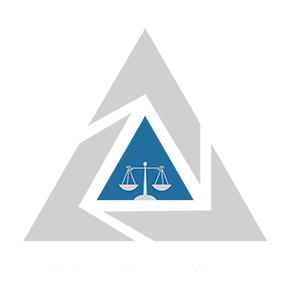Wrongful death is the death of a person caused by the wrongful act or omission of another person. In New Jersey, wrongful death damages are governed by the Wrongful Death Act, N.J.S.A. 2A:31-1 et seq.
The Wrongful Death Act provides for two types of damages: economic damages and non-economic damages. Economic damages are damages that are designed to compensate the surviving family members for the financial losses that they incurred as a result of the wrongful death. Non-economic damages are damages that are designed to compensate the surviving family members for the pain and suffering that they endured as a result of the wrongful death.
The amount of economic damages that a surviving family member can recover is determined by the lost wages and other economic losses that the deceased incurred as a result of the wrongful death. The amount of non-economic damages that a surviving family member can recover is determined by the pain and suffering that the deceased endured as a result of the wrongful death.
The Wrongful Death Act also provides for the distribution of wrongful death damages. The damages are distributed to the surviving family members in accordance with the following order of priority:
- The deceased’s spouse or domestic partner;
- The deceased’s children;
- The deceased’s parents;
- The deceased’s siblings; and
- The deceased’s grandparents.
If there are no surviving family members, the damages are distributed to the deceased’s estate.
The Wrongful Death Act has been amended several times since its enactment in 1957. The most recent amendment was in 2017 when the legislature increased the amount of economic damages that a surviving family member can recover.
The Wrongful Death Act has been the subject of several court decisions. The most important decision is the New Jersey Supreme Court’s decision in In re Estate of O’Rourke, 76 N.J. 575 (1982). In O’Rourke, the court held that the purpose of the Wrongful Death Act is to compensate the surviving family members for their financial losses and for their pain and suffering. The court also held that the damages should be distributed in accordance with the order of priority set forth in the statute.
The Wrongful Death Act has been the subject of several law review articles. The most important article is the article by Professor John J. O’Brien, “The Wrongful Death Act: A New Jersey Perspective,” 20 Seton Hall L. Rev. 1 (1988). Professor O’Brien provides a comprehensive overview of the Wrongful Death Act and its application in New Jersey.
The Wrongful Death Act is a complex statute that has been the subject of much litigation and commentary. The law review articles and court decisions provide a valuable resource for lawyers who are representing clients in wrongful death cases.
One of the most important decisions in the history of wrongful death law is the New Jersey Supreme Court decision in Green v. Bittner, 85 N.J. 1 (1980). In Green, the court held that a wrongful death plaintiff can recover damages for the loss of a parent’s companionship and advice. The court found that these damages are not economic damages, but rather non-economic damages that are designed to compensate the plaintiff for the emotional harm that they have suffered.
The court also held that the damages should be awarded to the plaintiff without regard to the plaintiff’s financial condition. The court reasoned that the damages are designed to compensate the plaintiff for their emotional harm, not to provide them with a financial windfall.
The Green v. Bittner decision has been the subject of much debate and commentary. Some commentators have argued that the decision is too broad and that it will lead to excessive damages awards. Others have argued that the decision is a necessary step in recognizing the full extent of the harm that is caused by a wrongful death.
The Green v. Bittner decision is a landmark decision that has had a significant impact on the law of wrongful death. The decision has made it clear that non-economic damages can be recovered for the loss of a parent’s companionship and advice. The decision has also made it clear that these damages are not subject to any financial limitations.
The decision is important because it recognizes the full extent of the harm that is caused by a wrongful death. The loss of a parent’s companionship and advice is a significant loss that cannot be fully compensated with money. However, the decision allows the survivors to recover damages for this loss, which can help them to heal and to move on with their lives.
The decision is also important because it is fair and accurate. The survivors of a wrongful death are often left with a significant financial burden, as well as the emotional pain of losing a loved one. The decision allows the survivors to recover damages for both of these losses, which can help them to get the help that they need and to rebuild their lives.
The decision is also consistent with the law of other states. Many states have recognized the right of survivors to recover damages for the loss of a parent’s companionship and advice. The decision in Green v. Bittner is simply following the lead of other states in recognizing this important right.


